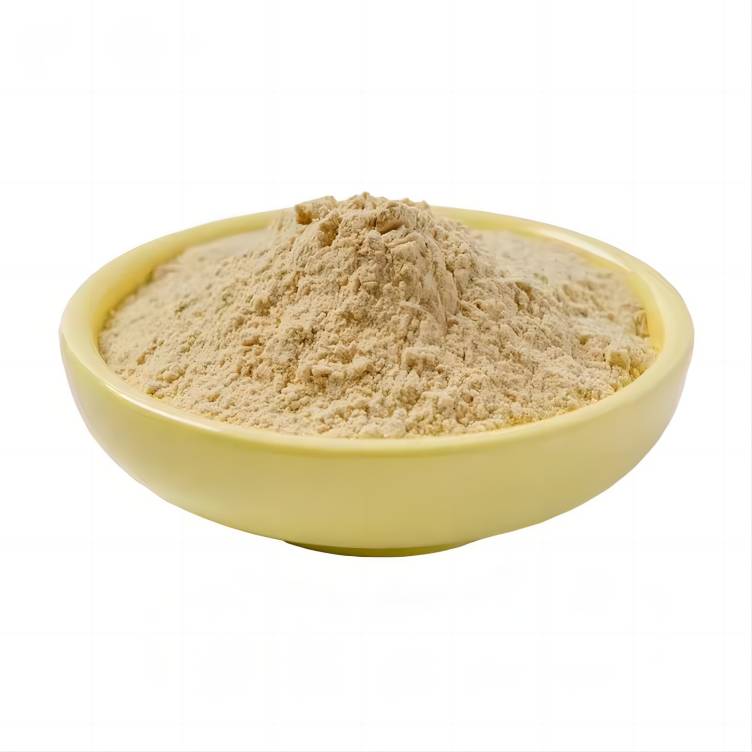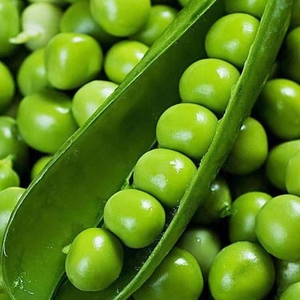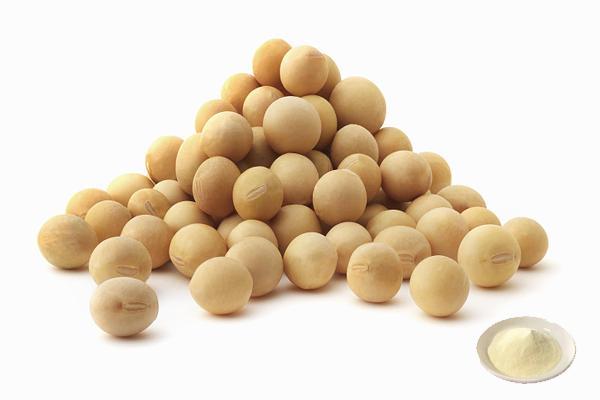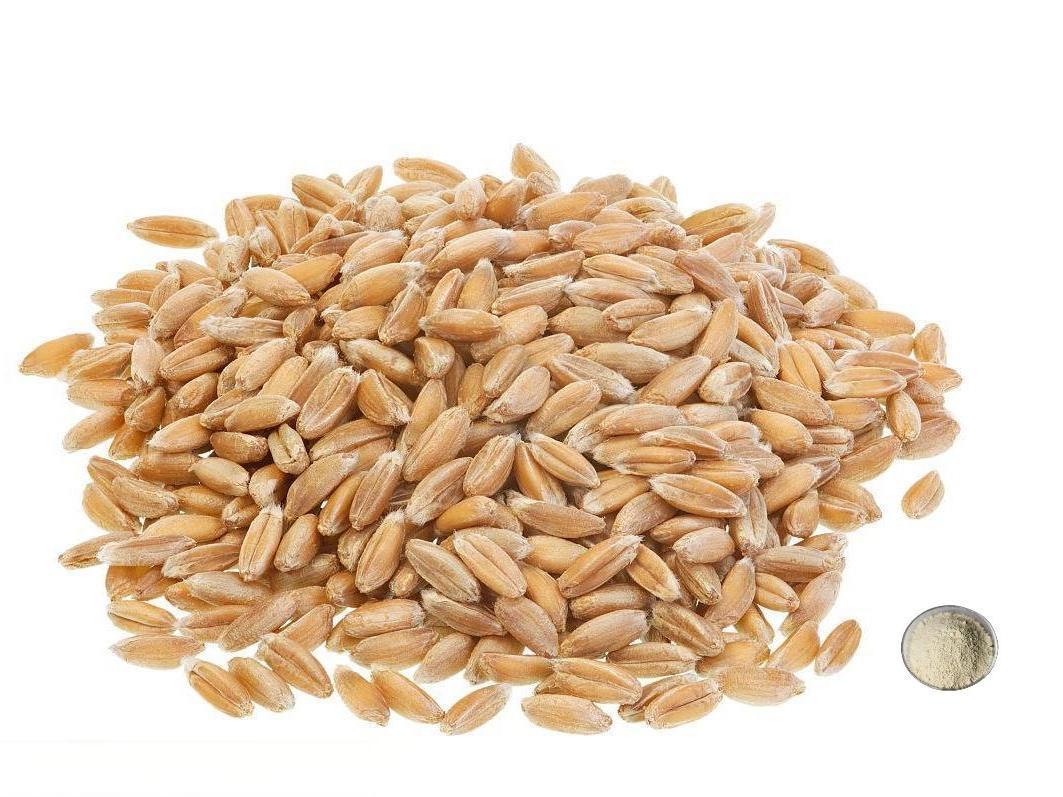80% Pea Protein Isolate Powder
Source:Pea
Active Ingredients:Pea Protein Isolate
Assay:80%, 85%,90%
Testing Method:Kjeldahl Determination
Appearance:Light Yellow Fine Powder
Pesticide Residue:Comply with (EC) No 396/2005 Standard
- Description
- Data Sheet
- Certificate
-
What is Pea Protein Isolate Powder?
Pea protein isolate is a protein powder obtained from the by-product of pea starch processing by wet spray drying and dry air separation. It has a high nutritional value, and its essential amino acid ratio is close to the human body's needs, and it is particularly rich in lysine. Pea isolates are commonly used in the food and supplement industries to enhance the protein content of a variety of products, including protein powders, meat substitutes, dairy-free products and protein bars.
Green Spring Technology adopts a new technology to separate the unnecessary components in pea protein, producing pea protein with little bean flavour, low allergenicity, high raw material price, rich in SOD enzyme, good antioxidant, and a more balanced composition of amino acids.
Green Spring Technology is a leading biotechnology company in China, which has been committed to providing customers with natural, safe and organic plant extracts. Our products meet the highest international standards, including EC396, 2023/915 and the highest solvent residue standards. Green Spring has a professional scientific research team, production management team, production team and sales team, is committed to providing customers with professional and quality technical services. Greenspring has obtained Halal, Kosher, COSMOS, BRC, IFS, FDA, ISO and many other certifications. We can provide authoritative third-party test reports.
Specification:
Product Name
Pea Protein Isolate Powder
Latin Name
Pisum sativum L.
Source
Pea Seed
Active Ingredients
Pea Protein Isolate
Specification
80%, 85%,90%
Testing Method
Kjeldahl Determination
Appearance
Light Yellow Fine Powder
Pesticide Residue
Comply with (EC) No 396/2005 Standard
Regulation:
It conforms to EU regulations.
Looking for a Quotation?Benefits:
Cholesterol and Lactose-Free
Animal proteins contain cholesterol, and excessive intake of cholesterol can lead to high blood lipids, which can cause cardiovascular diseases. Peas and other plant ingredients are cholesterol and fat-free, making them ideal for people with three highs. Pea protein is lactose-free, making it very friendly to lactose-intolerant people.
Low Levels of Anti-Nutritional Factors
Antinutritional factors may reduce the digestibility of proteins and other essential nutrients by binding strongly to them. Common antinutritional factors include alpha-galactose (bloat-prone sugars), phytic acid (chelator of important minerals), protease inhibitors (inhibit the breakdown of proteins), and lectins (sugar-binding proteins or glycoproteins of non-immune origin that tend to agglutinate cells or precipitate sugar complexes). The special production process of pea protein supplied by Greenspring Technology greatly reduces the content of anti-nutritional factors and ensures that pea protein is healthy and nutritious.
Rich in Nutrients
Pea protein is rich in nutrients such as high quality protein, fiber and B vitamins. It is an excellent source of protein and is particularly suitable for vegetarians and vegans. The protein contained in pea protein is easier to digest and absorb than other plant proteins, as well as helping to increase muscle mass and improve metabolic rate.
Non-GMO
Compared to soya protein, pea protein is less genetically modified and there are no genetically modified peas available. Most importantly, the process of producing pea protein is environmentally friendly, requiring 70 times less energy to produce 1g of pea protein compared to 1g of animal protein, and producing 1g of pea protein has 500 times less impact on greenhouse gas emissions than producing 1g of animal protein.
Helps Control Blood Sugar Levels
Pea protein is rich in fibre, which helps to slow down the absorption of food in the digestive system, thus helping to control blood sugar levels. Pea protein also contains an ingredient called pea globulin, which slows down the absorption of carbohydrates in the intestines, thus further reducing blood sugar levels.
Prolongs Satiety
Pea protein prolongs satiety, and retains dietary fiber better, absorbing more muscle-synthesising nutrients while satiating the stomach. A study comparing pea protein to dairy protein showed that pea protein aggregates briefly in the stomach and has an intestinal bioavailability between whey protein and casein. Meals containing pea protein and dairy protein were equally effective in triggering gastrointestinal satiety signals.
Hypoallergenic
Pea protein is a hypoallergenic food, like its warm taste, has a mild gastrointestinal reaction. Having lactose intolerance or allergies to wheat gluten and soybeans, the gastrointestinal tolerance to pea protein is higher than other types of protein powder, which does not cause bloating. It can also be consumed by people with gastrointestinal sensitivity.
Applications:
In the Food Field:
Due to its good functional properties, such as solubility, water absorption, emulsification, foaming, and gel formation, pea protein can be used as a food ingredient in meat processing, plant-based dairy products, plant-based ice creams, recreational food products, etc., to improve the quality and nutritional structure of the products.
Pea protein can be used to fortify beverages with nutrients in plant-based beverages and plant-based milks such as protein shakes, sports drinks and protein juice blends. This can meet the needs of different consumers for nutrients in beverages. Sports nutrition products represented by pea protein are rich in three essential branched-chain amino acids, namely leucine, isoleucine, and valine, which can promote muscle growth. At the same time, pea protein has a higher digestibility and a more balanced amino acid composition, making it an exceptional nutrient.
-
Download
80% Pea Protein Isolate Powder COA


 English
English French
French Spanish
Spanish Russian
Russian Korean
Korean Japanese
Japanese










